
When Linda Ann, Philippa York’s ‘better half’ invited questions for Pippa on Drew Wilson’s ‘Robert Millar Appreciation Group’ on FaceBook we thought it sounded like a good opportunity to us.
Aware of Pippa’s weakness for a certain bakery chain’s products there was no need to ponder over our first questions:
What’s your favourite Greggs savoury?
“It used to be the vegan sausage roll but lately discovered the vegan steak bake.”
What’s your favourite Greggs confection?
“Similar to the savoury question, started with the giant custard slice but since they reduced the size I’ve moved to the big shortcake biscuit.”
Can you tell us the Prof. Phil Anderson’s ‘cherry theory’ please?
“When Phil saw me eating a cake with the glacé cherry on top he said that he didn’t eat them because a chemical used in the making of said cherry stayed in your heart for seven years.
“I’ve never checked if that’s true – but never eaten them since.”
Mention of bacon rolls by Linda Ann makes me wonder if you’re still a vegetarian?
“Yes, I’m still mainly vegetarian but I’m not enough of a fundamentalist that I can’t be tempted by a bacon roll!
“I can’t remember who said it (may have been Jimmy Carr); ‘yes I follow a vegetarian diet but I’m not a wanker about it.'”
Coffee aficionado or will Nescafe do?
“Not that bothered by coffee.”
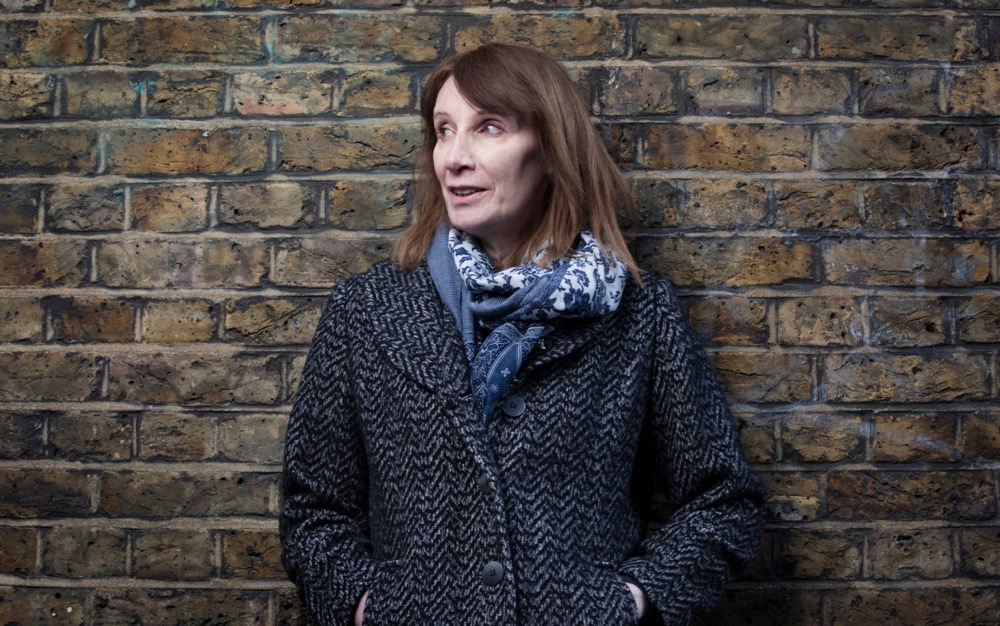
As they say in your home city of Glasgow; ‘do you take a drink?’
“No, I’m lucky that it does nothing for me so it doesn’t make me happy, sad, angry or whatever. I don’t like the loss of control feeling either hence it seems pointless to me to drink alcohol.
“Both my parents died of cancer at quite young ages which smoking and drinking couldn’t have helped.”
Any food or drink tastes acquired on the continent you brought back with you?
“The enjoyment of different breads. I grew up with white sliced loafs wrapped in plastic so discovering all the options has stayed with me.
“I go through phases where I’ll eat one type before moving on to something else.
“I still eat white bread just not as often as most people.”
Are you still into motorcycles?
“Yes, but I only have one at the moment, a ’93 Ducati 900 Superlight.”
Is Pegoretti still your favourite bike – what about carbon machines?
“The Pegorettis were lovely.
“There’s something about a metal based bike which is quite unique in how it rides and feels.
“Saying that, a carbon bike has it’s own properties which are enjoyable for different reasons.
“In terms of performance it’s hard to beat carbon and the attraction of riding something which has the latest and greatest in terms of tech is quite understandable even if you’ll never get close to the edges of it’s capabilities.”
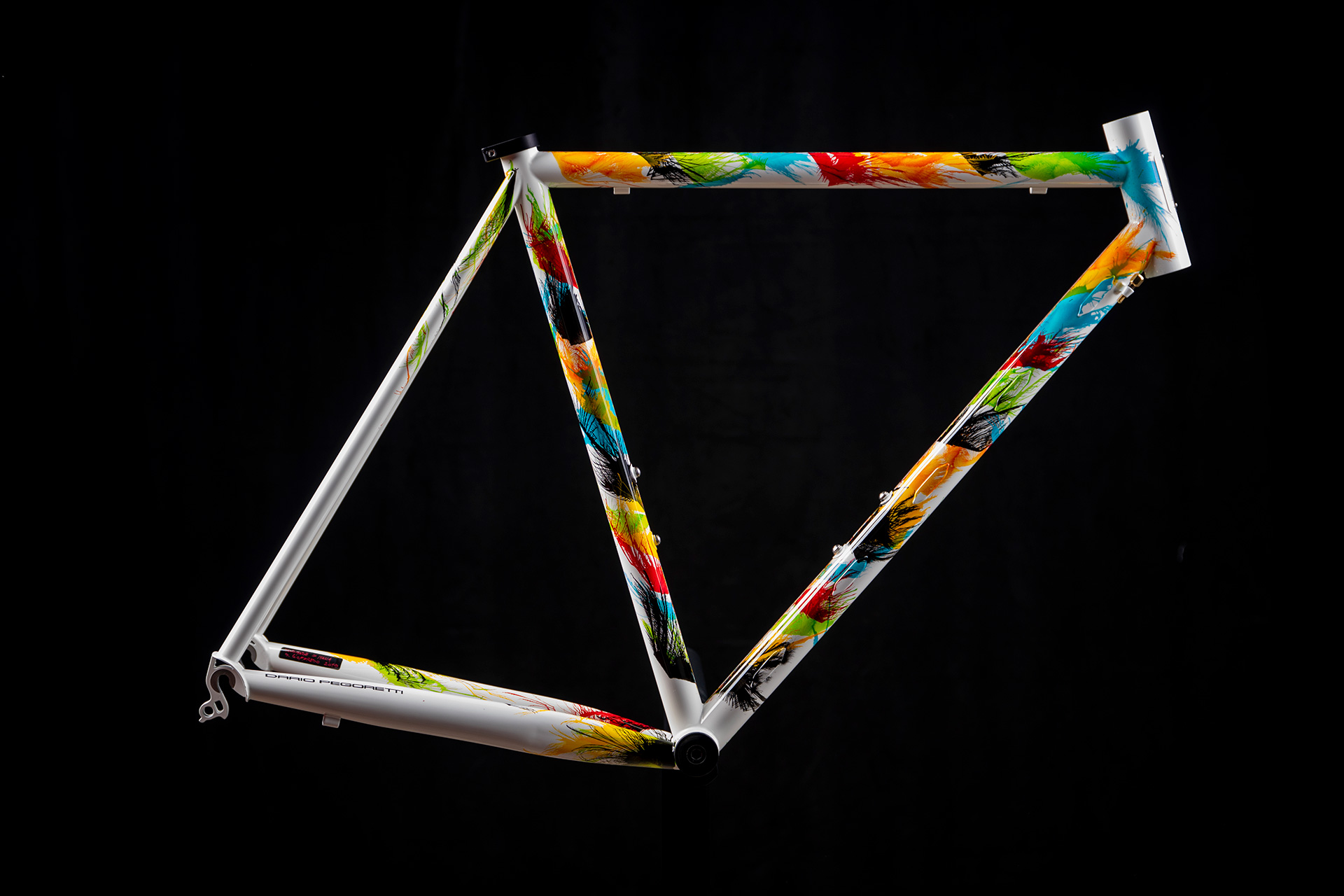
How are you dealing with these ‘Strange Days’ we find ourselves in?
“I’m enjoying the quiet outside; no cars, trucks, planes and very few trains.
“It’s strange though as the empty streets mean it’s like being in a zombie film sometimes.
“In terms of the restrictions on movement it’s not been that difficult for me to adapt as my exercise is cycling or walking anyway.
“I thought at first I’d miss going into town but it turns out I haven’t.”
What’s the future for cycling given what’s going on?
“I think a few people that have started cycling now it’s one of the ways you can go outside will stick with it.
“Maybe we’ll see more families out enjoying themselves as they’ll learn what it’s like to have the freedom that cycling brings.
“As far as the competitive side of cycling is concerned when racing starts again it’ll be quite hectic as everyone will be full of energy and nervous, just like the early season races.”
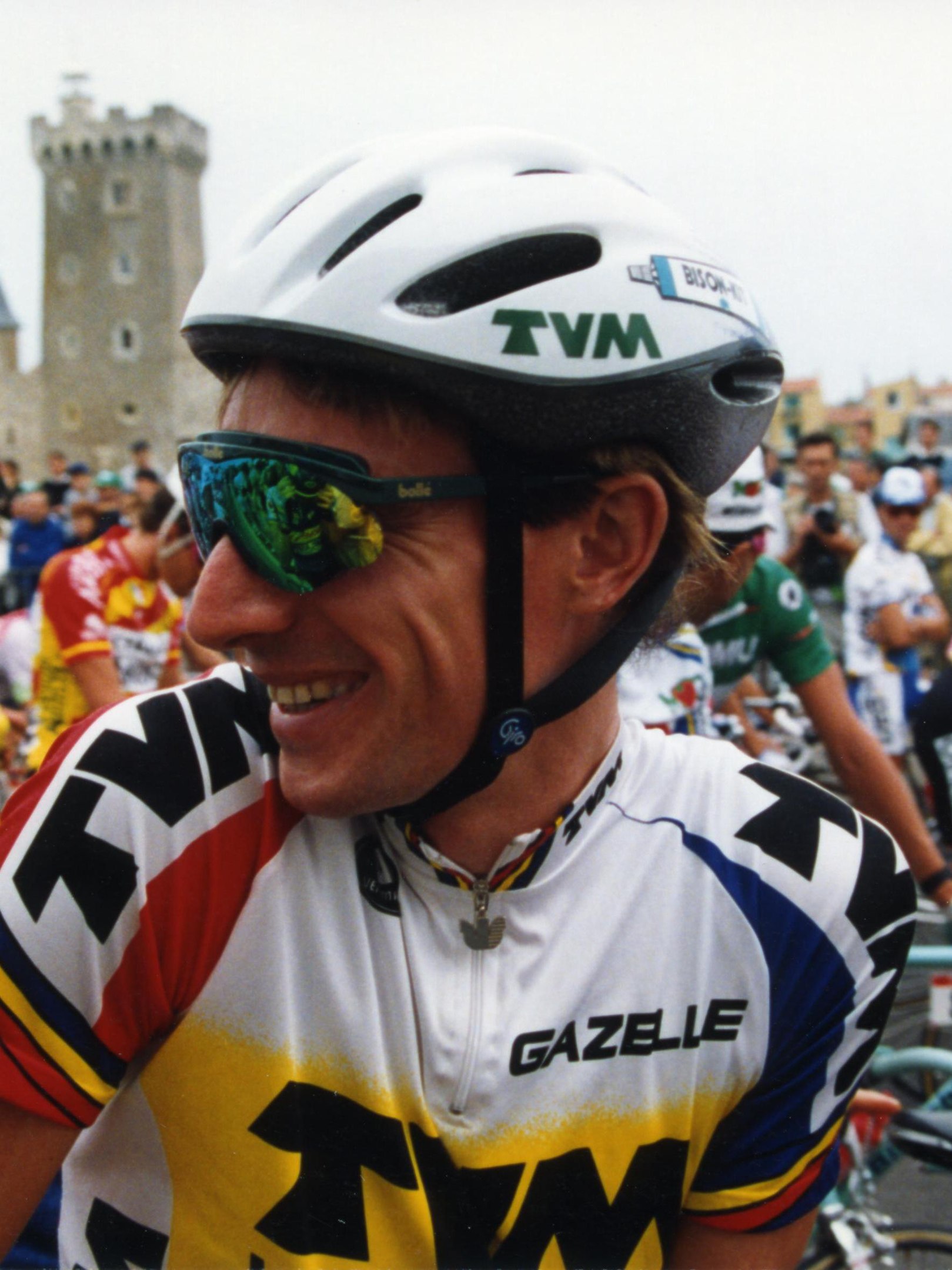
A few ‘retro’ questions, if I may? … ‘Was Panasonic supremo Peter Post as much of a Tartar as they say?’
“Yes, he had a personality and style of management that wasn’t the best way of dealing with everyone.
“Some people loved him and some didn’t. I didn’t.
“His teams were organised, structured and attracted the best riders, however with hindsight it was an experience which – though I learned a lot – I wouldn’t repeat.
“The people round about Post and the riders I liked, Post himself I didn’t.”
Le Groupement: can you tell us a little about its ‘uniqueness’ as a team please?
“Not sure I’d say it was unique, more like it had troubles because of a whole host of things.
“Problems on their own which wouldn’t be insurmountable but when put together meant it wasn’t going to last.
“It’s too complicated to explain in a few words but it’s fair to say that some of the personalities involved weren’t conducive to be in or running a bike team.”
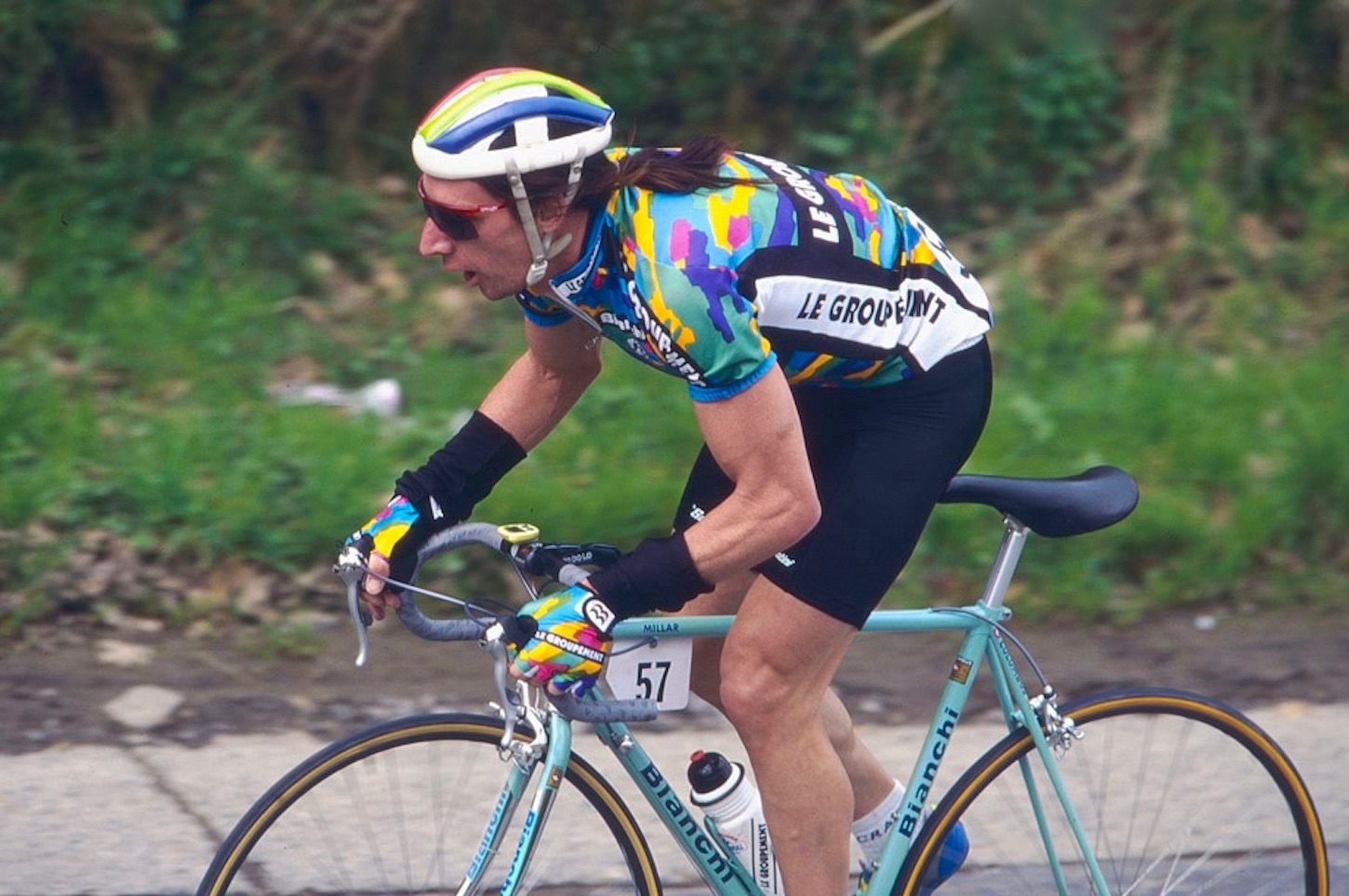
Did you plan for retirement from the sport – the period right after can be mentally hard for many riders?
“I knew it was coming as I had had enough of some of the aspects of racing as a pro and when that happens you know it’s time to stop.
“Unless you stay in the little world of racing then you are going to have a period of adaptation that is difficult to deal with.
“Going from the excitement of competing, travelling, being known etc. and returning to a normal life where you have none of those things isn’t easy.
“That’s why people struggle – they haven’t had a normal everyday existence for probably 15 or 20 years.
“I can understand when I see riders retire and they go through the process of adapting to life after racing.”
Who were your most loyal team mates?
“That’s an unfair question as it’s accusing some riders of not being loyal enough.
“I think you had people you knew could do their job and always did that or more and you had others who sometimes disappointed.
“You learn to live with both.”
Is the era of the ‘pure’ climber gone forever?
“No, what’s changed is the base level has risen, the “standard” professional has improved due to better education, be that personal or instructed; therefore the differences between riders have got smaller.
“Climbers still exist it’s just that how they have to ride has changed due to the change in how the races are run.”
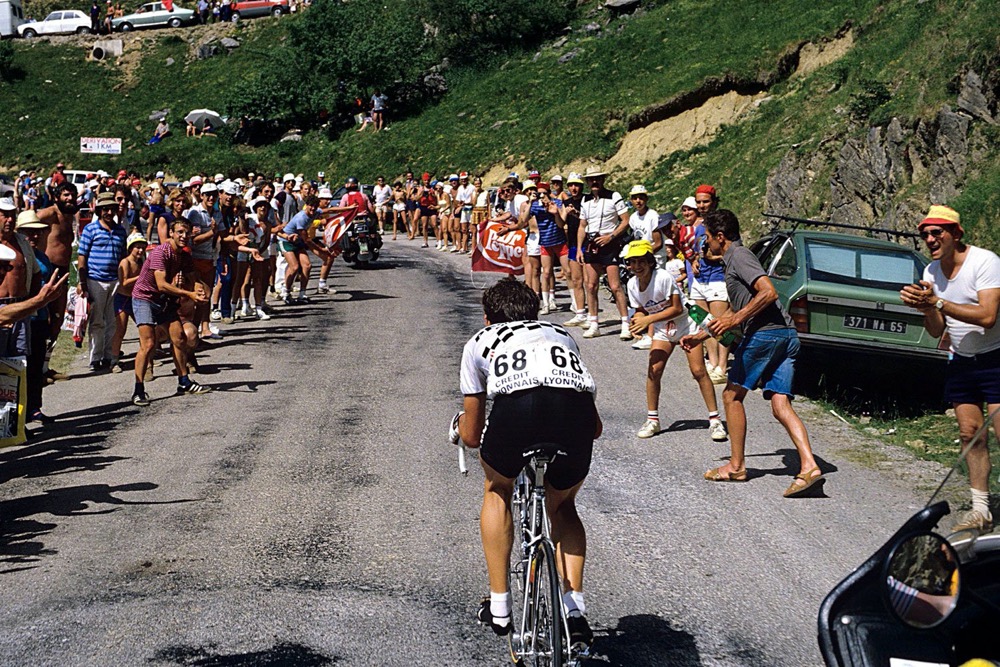
What changes would you make re. ‘parity/equality’ for women’s racing if you were the UCI?
“First would be proper television coverage, if you are running a World Cup event then a female version too.
“Same for the World Tour teams, have a certain minimum number of riders in the female set-up, less for pro continental given their budget is lower.
“Then there’ll be a stable basis to work with as far as events and properly funded set-ups.
“We can see from how certain events are promoted there is interest in women’s sport but until the governing body actively put in place measures to ensure equality then it’ll be a slow process.
“ASO probably hold more power in things happening than the UCI though.”
Transsexual individuals who wish to race, how should the UCI handle that situation?
“They already do, the UCI follows the IOC in terms of regulations.
“The debate seems to be whether trans individuals have to lower testosterone levels or not – and to what level.
“The current situation is set at 10nmol/l which won’t mean a lot to most people but it sits at the lower end of the male range.
“There’s talk of reducing it to 5nmol/l for trans athletes.
“Understanding the whole thing is rather complicated and one set of people say there shouldn’t be any lowering due to some health implications and the counter view is trans people should be allowed to compete at elite level.
“In reality medical transition lowers your testosterone levels to the female range so the ability to recover from training load (which testosterone allows) is dramatically reduced.
“Without that recovery you’ll never be able to train enough to reach elite level.
“There used to be the requirement that you couldn’t compete unless medically transitioned but that requirement was lifted due to the legal and social issues involved in such a decision.
“The IOC have the data since 2004 concerning trans individuals and as far as anyone is aware there haven’t been any trans athletes at an Olympic Games never mind winning medals.
“I know from my own transition that the hormonal changes resulted in a loss of 20-25% of my athletic power and when you see that the difference between male and female performance at elite level is in the 10-15% range then if a person transitions medically they aren’t going to be competitive.
“The problem is in finding enough individuals to verify that as there aren’t thousands of world class athletes going through transition and there certainly aren’t people willing to do so just to win medals or be famous.”
If you could change just one thing about your career?
“Not really, racing as a pro was great.
“If you had asked ‘one thing in my life’ that would have been a different answer…”
With thanks to Pippa for the interview and Linda Ann for facilitating the chat.



